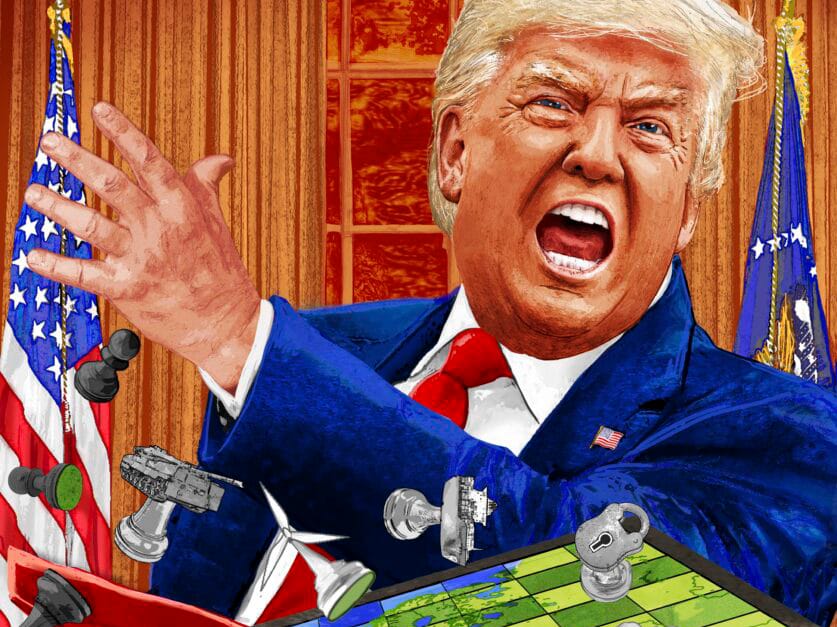The former president’s return would cement a shift in the U.S. as a fact that can no longer be ignored.
This is the moment most of Europe’s leaders hoped they would never see. The date is November 7, 2024, two days after Donald Trump edged out Joe Biden in the U.S. presidential election, and already the once-and-future president has announced he will force Ukraine to strike a peace deal with Russia and cede territories the Kremlin has claimed as its own.
Gathered in Budapest for a meeting of the European Political Community, the continent’s leaders stare out over the majestic Danube River with just one thing on their mind: How should they react?
Can they double down in the face of Trump’s opposition and finally give Kyiv whatever it takes, as a group of leaders clustered around Ukrainian President Volodymyr Zelenskyy and French President Emmanuel Macron are arguing? Should they follow Hungarian Prime Minister Viktor Orbán’s lead and welcome Trump’s initiative to bring the conflict to an end? Wouldn’t it be better to work with Washington and help shape the deal, as the German and Italian delegations keep saying? And most importantly, how can the continent’s leaders keep the sharp turn in U.S. foreign policy from driving their countries apart?
Trump’s return to the White House is no sure thing, but the possibility is forcing Europe’s leaders to ponder scenarios like this, and grapple with the questions they entail. And as the U.S. election cycle cranks into a higher gear, officials across the continent are becoming increasingly candid about the implications of a second Trump presidency.



It is usually good form to reply with a correction, if just to inform the others reading.
OK, no problem.
It was basically the other way around. The Republican Speaker of the House was forced to support the bill that the Democratic Senate had passed (and the President was ready to sign). Many hardliners in his (the Speaker’s) party are not happy with this decision. There was already a split forming there (Speaker Johnson recently signed the thing to keep the Government running while others in his party wanted to hold it hostage like they always do), but this has made it worse.
And to clarify, no the Speaker doesn’t have the power alone, but he has a lot of control over his party, and he and the Party Whip will get the votes they need, if that’s what they choose to do. So the buck stops with him when it comes to votes like this.
So as I understand it, pretty much the opposite of what you said.
Hopefully that cleared it up, I appreciate that you actually seem interested in finding out.